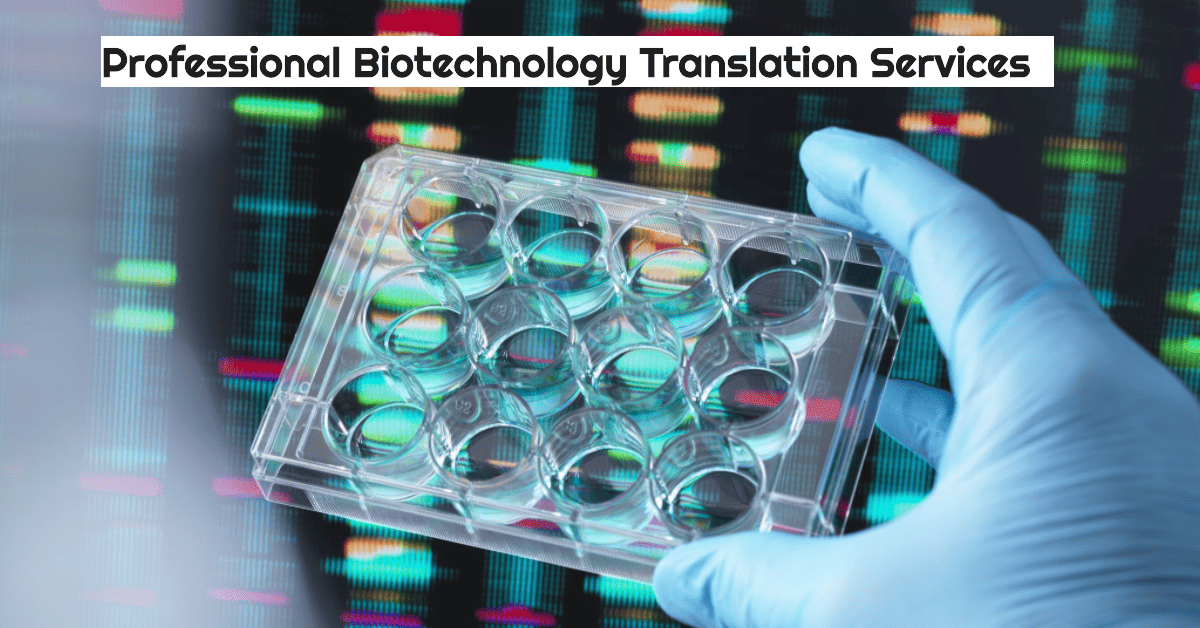Professional Clinical Research Translation Services for Pharmaceutical Businesses
In the dynamic and intricate world of clinical research, the importance of effective communication cannot be overstated. As clinical trials expand globally, the need for precise and culturally appropriate translations becomes critical.
Professional clinical research translation services ensure that vital information is accurately conveyed across diverse languages, facilitating smoother processes in clinical trials and enhancing collaboration among international teams.
What are Clinical Research Translation Services?
Understanding the Importance of Clinical Research Translations
Clinical research translation services play a crucial role in bridging language gaps in the medical industry. These services are designed to convert clinical trial documents, research protocols, informed consent forms, and other essential materials into the languages of participants, researchers, and regulatory bodies.
Accurate translation is paramount as it directly affects the safety and understanding of trial participants, ensuring they are fully informed about the clinical trial requirements. Furthermore, professional translation services help pharmaceutical companies comply with local regulations, contributing to the overall success of clinical trials and research.
Key Components of Clinical Trial Translation
When engaging in clinical trial translation, several key components must be considered.
First, the translation of clinical reports and documents requires a deep understanding of medical terminology and the specific nuances of the clinical research field. This is where qualified clinical research translators come into play. They not only possess proficiency in the target language but also have expertise in the medical field, enabling them to provide an accurate translation that adheres to the regulatory and ethical standards of clinical research.
Additionally, the translation process often involves back translation, where the translated text is translated back into the original language to verify accuracy and ensure that the meaning has been preserved.
Types of Translation Services for Clinical Research
There are various types of translation services available for clinical research, including certified translation, which is essential for official documents submitted to regulatory agencies.
Other services include language translation for clinical trial content, such as patient-facing materials, investigator brochures, and study protocols.
Furthermore, research translation services may also encompass localization, ensuring that cultural nuances and regional specifics are accurately represented in the translated material. In light of the diverse nature of clinical trials and research, selecting the right type of translation service is essential for achieving optimal outcomes.
How to Choose the Right Translation Service for Clinical Trials?
Factors to Consider When Selecting a Translation Company
Choosing the right translation company for clinical trials requires careful consideration of several factors.
Companies should look for a language service provider with a proven track record in medical translation services, particularly in clinical research. It is beneficial to assess their experience with clinical trial documents and interactions with leading clinical research organisations.
Additionally, evaluate their capacity to handle multilingual services, which is crucial for global clinical trials that require translations into multiple languages, such as Italian translation, Arabic translation, and more.
Evaluating Medical Translators for Clinical Research
When evaluating medical translators for clinical research, it is vital to ensure that they are native speakers of the target language and possess relevant qualifications in medical translation. Look for translators who have experience working specifically on clinical trial translation projects, as familiarity with the clinical research process significantly enhances the quality of the translation.
Furthermore, consider their understanding of clinical terminology and their ability to convey nuanced meanings accurately. Collaboration with certified translation professionals can make a significant difference in achieving high-quality translations that meet the rigorous standards of the medical industry.
Requesting a Free Quote for Translation Projects
Before committing to any translation service, it is advisable to request a free quote for translation projects. This process allows research companies to compare costs, turnaround times, and the range of services offered by different translation providers. A transparent pricing model can help organisations budget appropriately for their clinical research translations.
Furthermore, requesting a quote can also provide insight into the company’s professionalism and responsiveness, essential qualities when selecting a reliable translation service.
What is Involved in Clinical Trial Translation Projects?
Steps in the Clinical Research Translation Process
The clinical research translation process involves several critical steps to ensure the accuracy and quality of the translations.
Initially, documents are collected and assessed to determine the scope of the translation project. Following this, experienced translators begin the translation, using translation memory tools to maintain consistency and terminology accuracy.
Once the translation is complete, it undergoes rigorous editing and proofreading by another qualified translator to ensure the final output meets the required standards.
Finally, the translated documents are formatted according to the specified guidelines for clinical trial documents.
Importance of Linguistic Validation in Medical Research
Linguistic validation is a vital aspect of clinical trial translation projects, particularly when it comes to patient-reported outcomes and questionnaires. This process ensures that translated materials are not only linguistically accurate but also culturally relevant and understandable to the target audience.
Engaging in linguistic validation helps avoid potential misinterpretations that could lead to erroneous data and negatively impact clinical trial results. Thus, it is essential for clinical research translators to incorporate this step into their workflow to uphold the integrity of the research outcomes.
Handling Clinical Trial Documents: Best Practices
Handling clinical trial documents requires adherence to best practices to ensure the accuracy and confidentiality of sensitive information. It is crucial for language service providers to implement secure processes for document management, including encryption and limited access to authorised personnel only.
Additionally, maintaining a comprehensive glossary of clinical terms and utilising translation memory can enhance consistency across various translation projects. Regular training for translators on evolving medical terminology and standards is also critical for keeping pace with advancements in the medical field.
How Do Multilingual Services Enhance Global Clinical Trials?
Benefits of Multilingual Research Translation Services
Multilingual research translation services significantly enhance the effectiveness and reach of global clinical trials.
By providing translations in multiple languages, these services facilitate better communication between researchers and participants from diverse linguistic backgrounds. This increased accessibility not only helps improve participant recruitment and retention rates but also enhances the quality of the data collected, as participants fully understand the clinical trial content.
Additionally, multilingual support fosters collaboration among international research teams, allowing for a more integrated approach to clinical research.
Challenges in Translating Clinical Trials and Research
Despite the benefits, translating clinical trials and research presents several challenges.
One of the primary obstacles is the complexity of medical terminology, which can vary significantly across different languages and cultures. Moreover, legal and regulatory requirements may differ from one country to another, necessitating precise translations that comply with local laws.
Additionally, cultural differences can impact how information is perceived and understood, highlighting the need for skilled clinical research translators who can navigate these nuances.
Strategies for Effective Global Clinical Research Translations
To overcome the challenges of translating clinical trials, research companies should implement several strategies. Engaging professional translation services that specialise in medical and clinical research is essential. Utilising technology, such as translation memory, can enhance efficiency while maintaining quality.
Collaborating closely with local experts in target regions can also provide valuable insights into cultural considerations and ensure that translations resonate with the intended audience. By adopting these strategies, organisations can improve the accuracy and effectiveness of their global clinical research translations.
Challenges in Medical Translation Services
Common Pitfalls in Clinical Research Translations
Common pitfalls in clinical research translations can lead to significant issues, including misinterpretations that may jeopardise participant safety or result in non-compliance with regulatory standards.
Inaccurate translations can stem from a lack of understanding of the medical context or insufficient expertise in the relevant field. Therefore, it is crucial for pharmaceutical companies to partner with reputable translation companies that have a proven record in delivering high-quality medical translation services.
Ensuring Accurate Translation for Medical Devices
Accuracy in translation is especially critical for medical devices, where any errors can have serious implications for patient safety. Translators must be well-versed in the specific terminology associated with medical devices and understand the regulatory requirements for labeling and instructions for use in different regions.
This expertise ensures that the translated materials are not only linguistically correct but also compliant with the applicable laws and guidelines governing medical device manufacturers.
The Role of Back Translation in Clinical Trials
Back translation plays a pivotal role in maintaining the integrity of clinical trial translations. By translating the document back into the original language, researchers can identify any discrepancies or ambiguities that may have arisen during the initial translation process.
This quality assurance step is essential for ensuring that the translated materials accurately reflect the intended meaning and are suitable for use in clinical trials. Engaging professional translators who understand the importance of this process can greatly enhance the reliability of clinical research translations.
Expand Your Global Audience with WhizWordz Clinical Research Translation Service
Are you ready to take your travel blog to new heights? Don’t let language barriers hold you back! With WhizWordz professional travel blog translation service, you can connect with readers from around the globe. Our expert translators will ensure that your unique voice and captivating stories resonate across cultures. Start reaching an international audience today! Contact WhizWordz now to learn more about our customised translation solutions and watch your blog thrive!
Frequently Asked Questions (FAQs)
Q1: What are professional clinical research translation services?
A: Professional clinical research translation services provide accurate and culturally appropriate translations of medical documents related to clinical trials, including patient information leaflets, case reports, and trial protocols. These services ensure that all materials meet the necessary regulatory and linguistic standards for the international market.
Q2:How can a newsletter benefit my clinical research project?
A: A newsletter can effectively communicate updates, findings, and important information regarding your clinical research project to stakeholders, including patients and organisation members. It helps maintain engagement and ensures that everyone is informed about developments in the project.
Q3: How do I manage timelines for translation in my clinical research projects?
A: Managing timelines for translation in clinical research projects involves clear communication with your translation provider. Establishing a timeline at the beginning of the project and having a dedicated project manager helps ensure that all translations are completed on schedule without compromising quality.
Q4: What languages do your professional clincial research translation services that you provide in?
A: Our translation services for clinical research document cover a wide range of languages, allowing us to provide a report translated to any language you may need, ensuring effective communication in diverse linguistic contexts.
Typically, travel blog translation service will involve Simplified Chinese translation, Malay translation, Indonesian translation, Japanese translation and Korean translation. And European language will include French translation, Spanish translation, Portuguese translation, German translation
Q5: What is the role of subject matter experts in clinical research translation?
A: Subject matter experts play a crucial role in clinical research translation by ensuring that the translations are not only linguistically accurate but also contextually relevant. They help linguists understand the specific terminology and nuances related to new drugs and medical procedures.
Q6: How can I find the best clinical research translation services?
A: To find the best clinical research translation services, look for providers that have experience in medical translation projects and offer dedicated project management. Reading reviews and testimonials can also help assess their reputation and reliability.
Q7: What are the typical costs associated with clinical research translation services?
A: The costs for clinical research translation services vary depending on the complexity of the documents, the languages involved, and the urgency of the project. It’s important to discuss your specific needs with translation providers to receive a cost-effective estimate tailored to your project.




